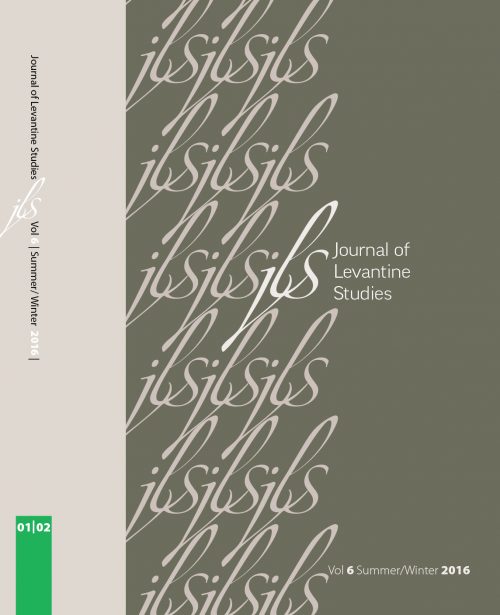-
Add to cartQuick view
Conversos, Finance, and Military Campaigns in the Reign of Ferdinand the Catholic: A View from Sicily
Free!The present paper examines the role played by high-placed converts in Sicily in the late fifteenth and early sixteenth centuries, in order to identify patterns of converso involvement in royal finances and state economy while offering an opportunity for tracing the beginnings of the advantageous relationship between king, court, and conversos. The protagonists of this discussion are Aloysio Sánchez, who acted as banker and treasurer to King Ferdinand the Catholic in Sicily, and the physician Ferrando de Aragona, the leader of the Sicilian “converso community” (universitas neophitorum). Aloysio Sánchez and Ferrando de Aragona were both instrumental in financing the Spanish military campaigns in the Italian south in 1494 and in North Africa in 1510. A better understanding of the roles played by these Sicilian-based conversos can shed light on some of the political and military developments of the last decade of Ferdinand’s reign. Ultimately, this paper argues that the high positions held by certain converts and their close ties to the influential figures of their time helped ensure their survival and continuing prosperity despite accusations of heresy.
Add to cartQuick view -
Add to cartQuick view
The Dutch Occupation and Defense of Brazil: The Question of the Support of Jews and Conversos
Free!Documents preserved by the Portuguese Inquisition, travelers’ tales, contemporary chronicles, and writings left by local priests provide information concerning the Brazilian conversos. Taken together, the documents permit reconstruction of important aspects of Lusitanian American socioeconomic history. Still, these must be read and used with extreme caution, as the sources always reproduce what the inquisitors wanted to prove: the persistence of Jewish heresy. According to traditional historiographers (among others: Robert Southey, Ignacio Accioli de Cerqueira e Silva and Braz do Amaral, Antonio Domínguez Ortiz, Lucia García Proodian, and Eduardo D’Oliviera França), most of the cristãos-novos (New Christians) in northeastern Brazil had apparently helped the Dutch invaders. This assumption, however, has not been corroborated by the evidence, which shows that only some of the New Christians carried out acts of war on the side of the Dutch in the initial stages of the conquest, during which they served as guides, advisers, translators, and soldiers. It will be shown that the New Christians were not a homogeneous group, nor did they behave as a coherent unit at any time in Brazil’s colonial period. In the years the Dutch occupied parts of northeastern Brazil (1624–1625 and 1630–1654), there were Christians, both Old and New, who sympathized with the invaders. At the same time, many of the New Christians born in Brazil were already integrated into colonial life and society, contributing money, fighting against the Dutch, and taking part in Portugal’s defensive plans. Examples in this updated survey on the topic illustrate that those New and Old Christians who supported either the Dutch or the Portuguese side did so mainly for economic reasons rather than out of political or religious motivations.
Add to cartQuick view -
Add to cartQuick view
Manuel Fernandes Vila Real at the Portuguese Embassy in Paris, 1644-1649: New Documents and Insights
Free!During the inquisitorial trial that would lead to his execution as a Judaizer, Captain Manuel Fernandes Vila Real (1608–1652) detailed in a long hand-written petition the considerable services he had rendered toward Portugal’s independence as a member of its embassy in Paris during the years of 1641–1649. Vila Real ended his autobiography with the enumeration of his publications on political matters, mentioning an additional two dozen confidential memorandums that he had composed in France during his work at the embassy. The present article reports on the discovery of extensive fragments from these lost manuscripts in a miscellaneous collection of state papers kept by the Portuguese National Archives. Thirty unsigned drafts, totaling more than one hundred pages, can be attributed to Vila Real on the basis of their handwriting. These papers apparently belonged to the estate of Ambassador Dom Vasco Luís da Gama, Marquês de Niza (1612–1676), who used them in his official reports. Vila Real gave his superior, and thereby the Portuguese government, a detailed account and analysis of current European events, accounts of the Fronde uprising in Paris, and suggestions for improving Portugal’s war effort, trade laws, finance, and international image. Though few of these memorandums address the New Christian problem directly, the latter turns out to be inseparable from Vila Real’s diplomatic activity.
Add to cartQuick view
- Home
- About JLS
- Issues
- Vol. 9 No. 1 | Summer 2019
- Vol 8 No 2 Winter 2018
- Vol. 8, No. 1: Summer 2018
- Vol. 7, No. 2: Winter 2017
- Vol. 7, 1: Summer 2017
- Vol. 6, Summer/Winter 2016
- Vol. 5, No. 2 Winter 2015
- Vol. 5, No. 1 Summer 2015
- Vol. 4, No. 2 Winter 2014
- Vol. 4, No. 1 Summer 2014
- Vol. 3, No. 2 Winter 2013
- Vol. 3, No. 1 Summer 2013
- Vol. 2, No. 2 Winter 2012
- Vol. 2, No. 1 Summer 2012
- Vol. 1, No. 2 Winter 2011
- Vol. 1, No. 1 Summer 2011
- Blog
- dock-uments
- Subscribe
- Submit
- Contact


